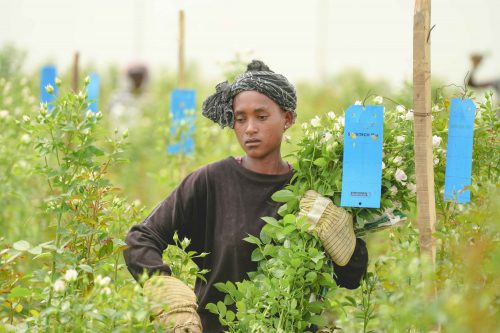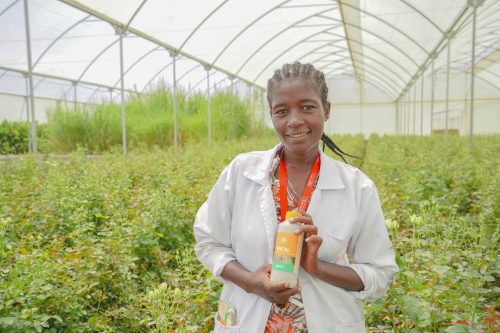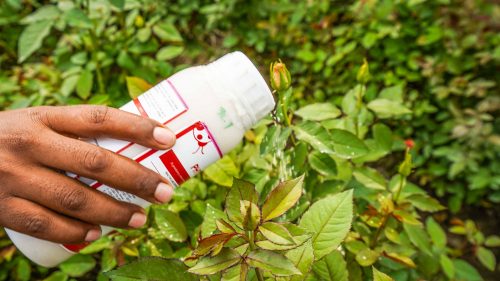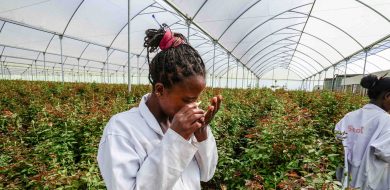Sher Ethiopia operates an integrated pest management policy. Diseases and pests are inevitable when growing roses. However, how these diseases and pests are controlled is not inevitable. Sher Ethiopia maximizes the use of biological and non-chemical pest control methods. Improving the health of people and the environment is an important goal. It is our ambition to work entirely with biological or non-chemical agents, whenever possible, and to continue to reduce the use of chemical products.
Our roses are constantly inspected by well-trained personnel, our “scouts”. They examine rose plants to determine whether they are pest free. The scouts also check whether enough living beneficial insects are present on the roses or whether a correction needs to be made. Sticky traps are used to attract certain insects. These makes it easier to assess whether a certain pest is present and to what extent.
IPM starts with a healthy plant. That is why we use plant enhancers. These materials support growth, strengthen the root system and environment, improve soil conditions and create a healthy biosystem for the rose plants. This stimulates natural processes. The plant resistance is boosted and healthy plants are the result. A healthy plant is less vulnerable to pest and diseases, so they also occur less.
If a pest is discovered in the greenhouse, a natural enemy of that pest is used as a pest control agent wherever possible. For spider mites, for example, this is the predatory mite. The biological pest control products are scattered over the roses. These products are insects, come in small bottles and allow the pest population to be controlled in a natural manner.

Although we use natural pest enemies as much as possible, it is not yet feasible to only use this approach in all cases. Chemical and non-chemical pest control remains necessary at times. Harmful insects can be controlled by spraying them with soapy solutions. For example, an effective technique that is widely used.
Besides insects, some diseases can be caused by fungi and moulds. For instance, downy mildew and powdery mildew, which are both commonly occurring diseases. Roses can be made less susceptible to such diseases by implementing IPM techniques, crop management measures. Increasing the natural resistance of plants and effectively selecting varieties. In addition to these methods, chemical and non-chemical pest control agents remain necessary. These treatments are carried out by specialized personnel under strict safety measures, which includes using obligatory protective clothing and face masks.

Products that are harmful to the environment, or whose effects are not yet precisely known, are not used. This is done to protect our workers and the environment. We adhere to strict standards in order to offer our customers the best-quality roses, without having a negative impact on the environment or the working conditions at our farms. Our methods are regularly audited by various external organizations. The quantity and type of pest control agents used are continuously benchmarked against international standards and the preferences of our customers and society.
The continuous search for, and use of, biological pest controls and non-chemical products makes Sher Ethiopia a front runner in the horticultural sector in Africa.

